How the Red Eye indie is adapting its budgets, but not its ambitions, in the face of funding challenges
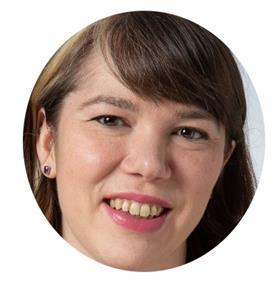
Standing in the cavernous space between the seven sound stages of Wolf Studios Wales, two miles from Cardiff city centre, it’s very clear that Bad Wolf was always conceived as a project of scale.
Founded almost exactly a decade ago by former BBC drama controllers Jane Tranter and Julie Gardner (the Cardiff studios opened two years later), the company was at the vanguard of the UK’s high-end TV revolution.
One of its early productions, an adaptation of Phillip Pullman’s universe-spanning fantasy trilogy His Dark Materials, was at the time the BBC’s most expensive show to date, reportedly costing around £50m, thanks to major partnerships with New Line Cinema and HBO.
Since then, the landscape has changed dramatically. Rampant inflation, a recalibration of streamers’ spending and the bottom falling out of the US co-production market have created a very challenging environment for top-level British drama producers
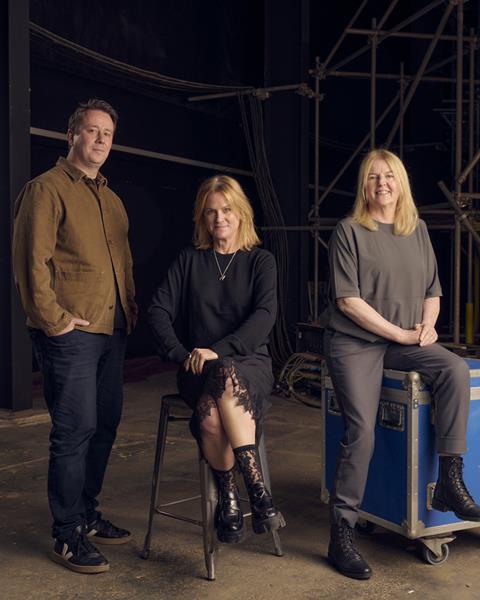
Bad Wolf, owned by Sony Pictures Television, has navigated these changes better than most – it was the biggest UK indie by turnover that took part in this year’s Broadcast Indie Survey, with revenues of £155.48m in its last financial year – but even it is rethinking its strategy. Welcome to Bad Wolf 2.0.
Tranter acknowledges that the label’s first decade was “founded off the back of a substantial and what looked like a sustainable American and UK co-production model. We’ve had 10 years at huge scale – and we will have another 10 years at a different type of scale.”
The changing market conditions have been “a slow creep” which have been on the company’s radar for a while, she says, in part because of how attuned it is to the US market. As a result, its slate is already “a much more mixed ecology” of content”, leaning into shows at a lower price point – exemplified by last year’s Red Eye. The pacey thriller, set on board a flight to China, was sold to 120 territories around the world and was recommissioned by ITV last autumn. Series 2 will likely TX in early 2026.
Going forward, Tranter believes that the highest budgets will “probably top out around £5m or £6m an episode”, alongside more modest budgets for shows “where you feel grateful to get £2m-ish”.
Managing director for finance and operations, Mary Furlong is quick to point out this won’t be completely new territory for the indie. It has “always been agile”, she says, having previously produced the likes of Sky’s Billy Piper-led comedy drama I Hate Suzie alongside His Dark Materials.
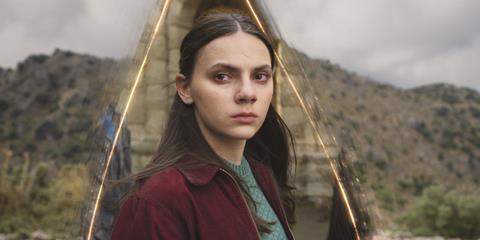
The company is also striking deals with a wider range of buyers as it enters its second decade – in the first 10 years, Bad Wolf made content only for PSBs and Sky. Now, it’s prepping Phillip Kerr adaptation Berlin Noir for Apple TV+, and has what Tranter describes as “a blinking green light” on a show with Netflix. She hints there’s more in the works as well.
Managing director Dan McCulloch says this is indicative of the way the company is “setting our sights on different challenges”.
“It used to be talking, furry creatures, or ‘how do you build the set for a financial institution in Wales and pretend it’s London?’” he says. “Now it’s going to be stunts and action on a Netflix show or it’s going to be a period detective drama [Berlin Noir].”
McCulloch points out that the company hasn’t tackled a procedural, which Berlin Noir will be, and says that when it does the result will be distinctively ‘Bad Wolf’. “That’s something we really pride ourselves in, being bold in different ways.”
He rejects the idea that working to smaller budgets means diminishing expectations.
“Ultimately, we’re an ambitious company, but it’s not just a financial game. We’re concerned with how do we best put ourselves out there and tell the stories we want to tell? It’s by variation, by different types, which is why we’re in a new era now.”
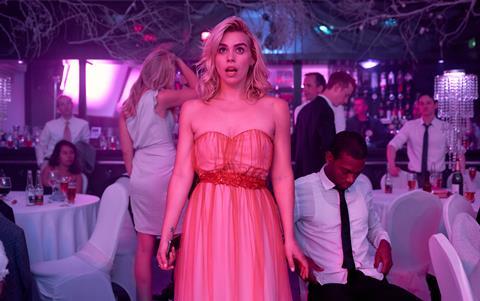
To this end, the indie also plans to leverage its studio space. The facility – appropriately enough, a former factory producing parts for TV screens – was developed one sound stage at a time, depending on what was needed for a given production. Among them is the tallest stage in the UK, which currently houses the sprawling interior of the Tardis. Next door, the plate-glass and concrete offices from financial drama Industry look out onto wrap-around backdrops of the London skyline, giving the unnerving impression of being 15 storeys up.
In hindsight, building the studio alongside the company was “expensive and phenomenally risky”,” Tranter says.
“If I’d realised, we probably wouldn’t have done it – but I wasn’t clever enough. I was just intent on making Discovery of Witches and then His Dark Materials, which wouldn’t have been possible without a studio environment.”
Until this year the studio had never been used to house two productions simultaneously but that changed when series four of Industry was filmed alongside Pride and Prejudice spinoff The Other Bennet Sister.
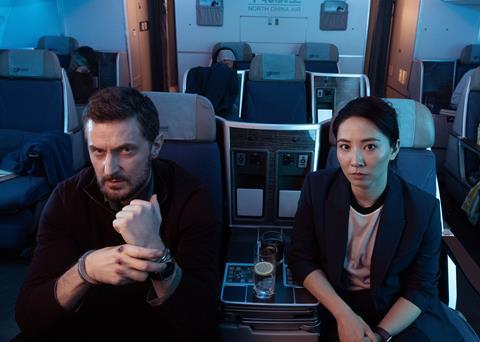
As Furlong points out: “There might not be a show with the longevity or crew size of HDM [in the future], but there’ll be multiple shows, hopefully.”
Ideally, she says, the label will produce around four shows a year. “It’ll be chaos,” Tranter jokes – but Furlong is confident that shows being shot simultaneously can be effectively segregated. The company has invested in separate wardrobe and dressing room facilities, for example, to prevent leaks between cast and crew.
There’s also the possibility of opening up sound stages to other companies’ productions to generate additional income, McCulloch says.
The company’s change in direction has also altered its development strategy. Where previously, siloed development teams worked separately on different projects, the top creative team [see boxout] now works across the entire slate, bringing in producers and other creatives at a later stage in the process.
McCulloch says the change allows the company to work at volume, keep communication channels clear and give “writers the best possible service”.
Tranter chimes in that the smaller core development team allows everyone to be across every project, so that “when Dan sets a strategy for changing a budget direction or pushing project over the line, we can be working hand-in-glove with Mary, production and business affairs”.
Furlong is involved from the get-go, searching for ways to de-risk development and ultimately get shows across the line.
“My job is to let the creative process happen and not burden them with finance as much as possible – but in the knowledge that I can pull them back when I need to,” Furlong says.
Anatomy of the wolf
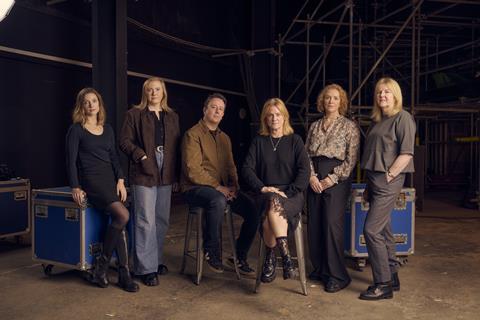
Jane Tranter leads the company as chief executive, while her co-founder Gardner heads up Bad Wolf America, a separate entity launched in 2019, in which the UK company has a minority stake. While Gardner continues to support development of some shows and is credited as an executive producer on Red Eye, Doctor Who and its upcoming spinoff The War Between The Land and Sea, her focus is largely on America.
Alongside Tranter on the senior leadership team sits McCulloch and Furlong, as well as director of production Emily Russell, director of legal, business affairs and operations Beth Wyllie, and former Casarotto literary agent Emma Obank, director of commercial, editorial and business development, who was recently promoted to the senior leadership team after 18 months with the company.
Tranter and McCulloch are supported on the creative side by executive producer Kate Crowther (a “stalwart figure in the company”, McCulloch says), creative executive Becca Kinder, who started out as a script editor on His Dark Materials – currently being covered by producer Flynn MacDonell while on maternity leave – and development co-ordinator Nina Rutman, who started out as a script reader for the company while at university. Chief creative officer Ryan Rasmussen and executive producer Joel Collins sit alongside them, playing “crucial” roles, McCulloch says.
At a time when drama financing is a hot topic, it’s significant that an old-fashioned model served Bad Wolf well with Red Eye: thanks to a top tariff from ITV, the tax break and significant support from distributor Sony, the drama was produced without a major co-pro partner. It’s the first time the indie has funded a show this way.
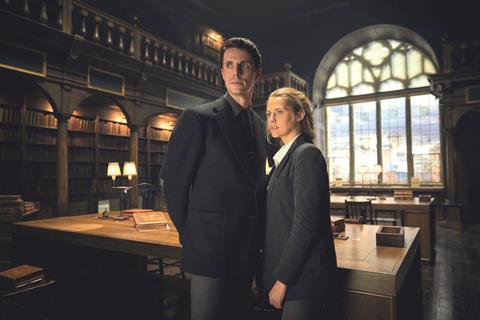
The gamble paid off, with the series selling into more than 120 countries and numerous second window deals being struck. The initial revenue expectations set by Sony Pictures Television were exceeded by 40%, and it delivered above its 10-year ultimate projections in less than a year.
The Other Bennet Sister, an adaptation of fellow former BBC exec Jane Hadlow’s novel about an oft-overlooked Jane Austen character produced by Kate Crowther, has also been heavily backed by Sony and has been boarded by Britbox. It is due to go out on BBC1 next year.
Sticking with financial concerns, Tranter believes more can and should be done to support UK producers through the tax credit system.
She’s been at the forefront of a campaign calling for HETV tax credits to be structured in a similar way to the Independent Film Tax Credit, offering support particularly for band two shows with budgets of between £1.25m and £3m per hour. These shows, she has argued, are particularly affected by rising production costs.
She argues that productions with the very biggest budgets arguably have more ways of securing financing: “At that level, it’s your job as a producer to bring in the cast, to bring in all those different things that will help increase its saleability,” she says. But while a bit of leg work might once have secured funding for smaller shows, that is no longer the case. And that’s a problem, she says, as they are often the titles that are “very specifically holding a mirror up to the way we live now in the UK”.
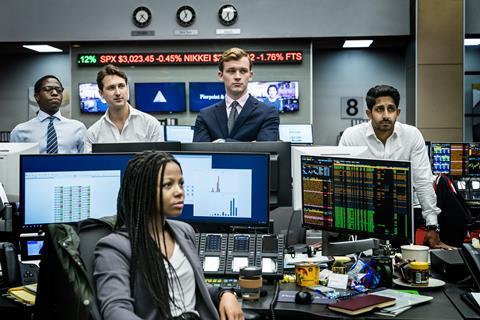
Without the tax credit being extended, she says, “all we are going to make are thrillers and police procedurals, which will be sold by the yard around the world”. She believes drama is vital in the current political moment of distrust and misinformation: “Humanity has always learned from telling stories to each other, and I truly believe stories will save us – so I think it’s a particularly bad time not to be telling them.”
The problem is particularly acute outside of London, she says.
“It is not a level playing field – it is more expensive to film in the nations and regions because you can’t always expect to draw 100% of your crew base from the area,” she says. “It doesn’t matter how much Bad Wolf grows, all you need is one or two other productions down the road and someone will be looking to bring people over the bridge.”
She acknowledges that there are currently a lot of competing priorities for the government, but, she says, the issue is “definitely in play”.
The future of Doctor Who
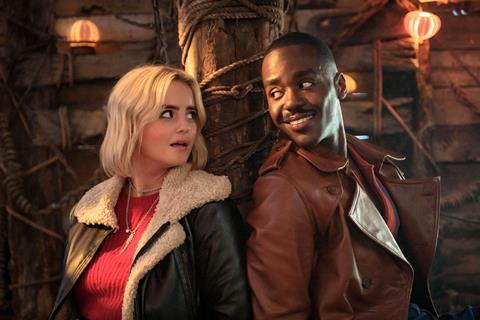
A key strand of revenue for Bad Wolf over the past few years has been producing Doctor Who for the BBC in the UK and Disney around the world, at a reported cost of around £10m per episode.
The 26-ep deal (two eight-episode series of the iconic franchise plus Christmas specials, alongside spinoff series The War Between the Land and The Sea) is nearing its completion, but Tranter is very calm about speculation around whether Disney will renew, and what that might mean for Bad Wolf’s continued involvement (although the BBC has confirmed that the show itself will continue, with or without Disney).
“What will happen next is between the BBC Studios and Disney+ - and Bad Wolf certainly won’t be the first to know,” she says, adding with a grin: “I take responsibility for lots of things, but gloriously on this occasion, that one is out of my hands.”
Ratings for the second series dropped off slightly from the first, but still averaged a healthy 3.3m after 28 days, while the show’s inclusion of trans and queer characters attracted criticism from certain elements of the right-wing press.
Tranter’s having none of it. “In all honesty, I’ve had no sense from Disney+ that measures up to what is being written about Doctor Who,” she says. “All we can do is tell stories that reflect the world in which we live – not just some of us, but all of us.”
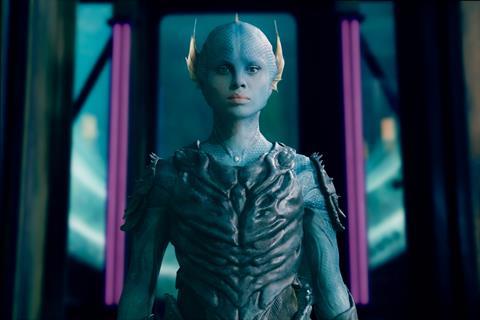
Ultimately, she believes Disney’s decision on the future of the deal with the BBC will be financial and algorithmically driven.
What’s next? It will soon shoot its first series entirely aboard (in Germany, naturally) for Berlin Noir, it has projects with Disney in the works and a tantalising “blinking green light” from Netflix, a project that Tranter says will look at a “a certain form of Britishness” via the prism of action adventure.
Plus, Bad Wolf has ambitions to build on The Other Bennet Sister.
“Janice Hadlow found a character from Pride and Prejudice who Jane Austen saw scornfully out of the corner of her eye, and gave her a modern relevance and resonance,” Tranter says. “We are in conversation with Janice about doing that with another one of Jane Austen’s characters – and we are excited.”
Her approach to reaching the milestone of 10 years in business, beyond gratitude for the writers, broadcasters, crew and community support which has made it possible, is pragmatic – and perhaps a little Austen.
“It’s not quite a trumpet – it’s more of a cup of tea, and continuing the march,” she says.
Making a mark - the financial impact of Bad Wolf
To date, Bad Wolf has produced 20 series of television in the UK, including His Dark Materials, A Discovery of Witches, I Hate Suzie, Industry, Dope Girls, Doctor
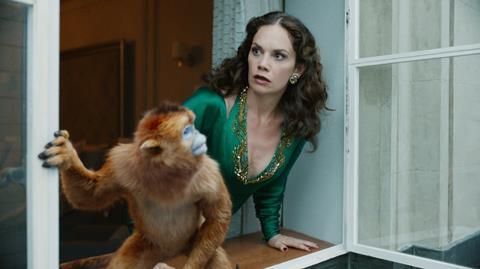
Who, The War Between The Land and The Sea, The Winter King, Red Eye and the upcoming The Other Bennet Sister.
Figures released by the indie today reveal these shows represent a total investment of £736.7m, resulting in 11,613 full-time equivalent jobs (FTE) and £881.5m in gross value added for the UK economy. This includes 4,821 FTEs and £425.8m in GVA directly within the UK’s TV production and post-production industries.
Spending on cast, crew, suppliers and intellectual property holders based in Wales accounted for £347.1m (or 47% of the total investment) and resulted in 4,044 FTE jobs and £258.1m in GVA for the Welsh economy. Of these FTE jobs, just over half (2,101) went to Welsh crews, who earned a combined £86.1m on Bad Wolf projects.
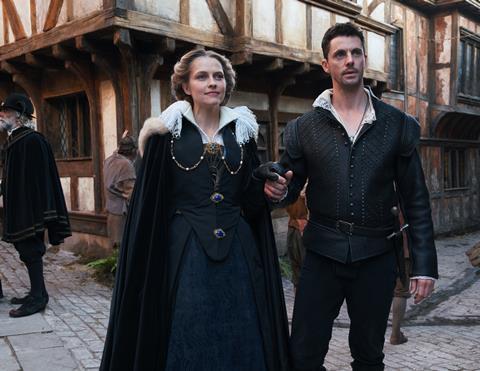
According to the Bad Wolf figures, every £1m invested by the Welsh government has yielded £23.5m in additional GVA and 368 additional FTE jobs
The company’s co-productions with the likes of HBO and MGM+ have brought more than £222m in foreign direct investment to the UK.
The company established its training arm, Screen Alliance Wales in 2017 to provide routes into the TV industry for people from all background, and to ensure there was enough local talent to support the indie.
Over the past 10 years, SAW has facilitated 579 work placements, 192 traineeships, reached 74,330 people via in-person and digital outreach, and hosted 5,434 studio visits for Welsh youth.
Even with the industry contracting and jobs becoming harder to come by, it’s crucial that TV production is a visible career option to people from all backgrounds, McCulloch says.
“It’s not about one ethnic group or a privileged class of people being able to work in TV,” he says. “If we want to grow and to tell new, more interesting stories, we need a better and more diverse base of talent to draw from.”



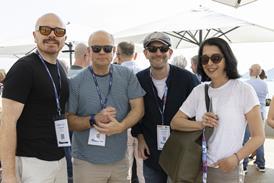




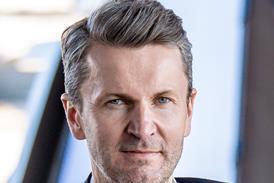

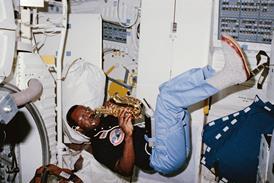
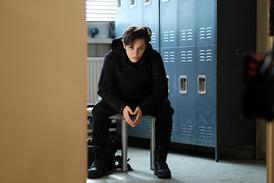
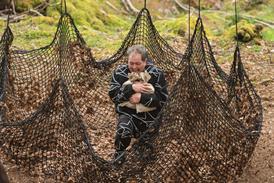
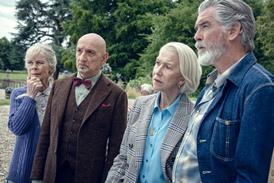





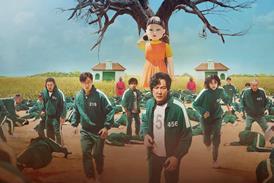
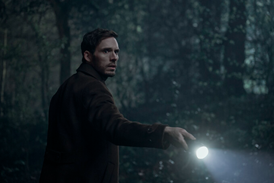

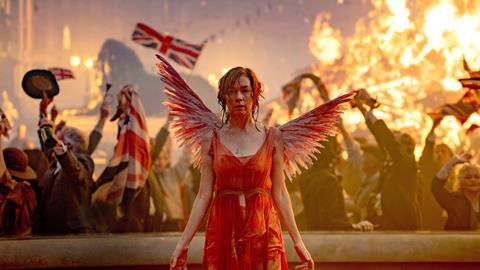






No comments yet